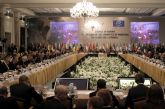- Serbia
Get to know Serbia
- Citizens
Culture and science
Health services
Pension and disability insurance
- Business
Employment
Economy
- Media
- Government
- Contact
Keep in touch
Contact form
Back
Keepin touch
Whether you have a question, comment, suggestion or any problem in the purview of the government, send us your message and we will try to respond as soon as possible. If your problem is not in our purview, we will forward your message to the relevant institution.
Q:
A:
Jeremic calls on CoE to support investigation of human organ trafficking under UN SC mandate
Belgrade/Istanbul,
11 May 2011
Minister of Foreign Affairs Vuk Jeremic called on the Council of Europe (CoE) today to support the launch of a full investigation under the mandate of the UN Security Council about the trafficking in human organs in Kosovo-Metohija.
Jeremic said in Istanbul at the 121st session of the CoE Committee of Ministers that on 25 January this year the CoE Parliamentary Assembly adopted a resolution on the basis of Dick Marty’s report on trafficking in human organs in Kosovo-Metohija, noting that the seriousness of heinous allegations in the report shocked the conscience of the world.
He pointed out that this investigation, just like all previous ones about crimes committed in the Western Balkans should be conducted under the auspices of the UN Security Council.
Keeping a coherent approach to the issue of war crimes is not only an international obligation but a moral imperative towards victims and their families. It is, however, also a part of the joint effort to consolidate stability and promote peace in the Balkans, the Minister said.
Horrific allegations in the report support what had long been suspected - that leading public figures in Kosovo were involved in organised crime - money laundering and smuggling of weapons and drugs, Jeremic said and pointed out that they are responsible for the abduction of hundreds of Serbian civilians before, during and after the 1999 conflict and that all those abducted from Kosovo were sent to secret concentration camps in Albania.
They were forced to undergo surgery and were left to die, and their organs were sold on the international black market. This is a unique, monstrous practice in the annals of the brutal war in Europe, Jeremic stated and asserted that the issue of Kosovo-Metohija is one of the most delicate issues with which the Council of Europe is facing.
In his opinion, organisations like the Council of Europe should refrain from harsh and destructive debates on Kosovo-Metohija because they could easily disrupt the dialogue between Belgrade and Pristina, which is supported by the international community.
Instead of that, the status-neutral initiatives of the Council of Europe should remain the focus of the precious work of this pan-European organisation.
The Minister pointed to the recent desecration of the Virgin Ljeviska Church in Prizren and reminded the members of the Council of Europe of the key role of this organisation in the preservation and reconstruction of Serbian cultural heritage in Kosovo-Metohija.
Jeremic said that Serbia is fully dedicated to key principles of the Council of Europe – human rights, democracy and the rule of law.
These are the most important instruments for the building of European society, strengthening of regional cooperation and promotion of good-neighbourly relations.
Jeremic underlined that Serbia supports the process of reform of the Council of Europe initiated by its Secretary-General Thorbjorn Jagland and which involves strengthening of this organisation’s role on the political scene of Europe.
He pointed out that this investigation, just like all previous ones about crimes committed in the Western Balkans should be conducted under the auspices of the UN Security Council.
Keeping a coherent approach to the issue of war crimes is not only an international obligation but a moral imperative towards victims and their families. It is, however, also a part of the joint effort to consolidate stability and promote peace in the Balkans, the Minister said.
Horrific allegations in the report support what had long been suspected - that leading public figures in Kosovo were involved in organised crime - money laundering and smuggling of weapons and drugs, Jeremic said and pointed out that they are responsible for the abduction of hundreds of Serbian civilians before, during and after the 1999 conflict and that all those abducted from Kosovo were sent to secret concentration camps in Albania.
They were forced to undergo surgery and were left to die, and their organs were sold on the international black market. This is a unique, monstrous practice in the annals of the brutal war in Europe, Jeremic stated and asserted that the issue of Kosovo-Metohija is one of the most delicate issues with which the Council of Europe is facing.
In his opinion, organisations like the Council of Europe should refrain from harsh and destructive debates on Kosovo-Metohija because they could easily disrupt the dialogue between Belgrade and Pristina, which is supported by the international community.
Instead of that, the status-neutral initiatives of the Council of Europe should remain the focus of the precious work of this pan-European organisation.
The Minister pointed to the recent desecration of the Virgin Ljeviska Church in Prizren and reminded the members of the Council of Europe of the key role of this organisation in the preservation and reconstruction of Serbian cultural heritage in Kosovo-Metohija.
Jeremic said that Serbia is fully dedicated to key principles of the Council of Europe – human rights, democracy and the rule of law.
These are the most important instruments for the building of European society, strengthening of regional cooperation and promotion of good-neighbourly relations.
Jeremic underlined that Serbia supports the process of reform of the Council of Europe initiated by its Secretary-General Thorbjorn Jagland and which involves strengthening of this organisation’s role on the political scene of Europe.
-
 Belgrade, 22 August 2025
Belgrade, 22 August 2025Serbia partner country at international agricultural fair in Slovenia
-
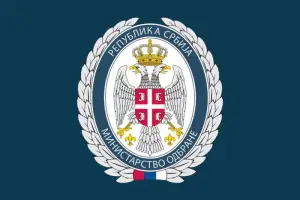 Belgrade, 20 August 2025
Belgrade, 20 August 2025Successful engagement of Serbian Armed Forces contingent in peacekeeping mission in Sinai
-
 Belgrade, 18 August 2025
Belgrade, 18 August 2025Serbian police take part in international seizure of 4.8 tonnes of cocaine
-
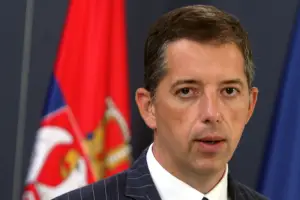 Belgrade, 17 August 2025
Belgrade, 17 August 2025Those responsible for incidents in Valjevo must be found, punished
-
 Кladovo, 12 August 2025
Кladovo, 12 August 2025181 fires recorded in Serbia in last 24 hours
-
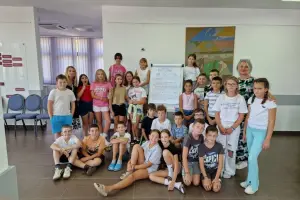 Tršić, 11 August 2025
Tršić, 11 August 2025Students of supplementary Serbian language schools in Tršić again this year
-
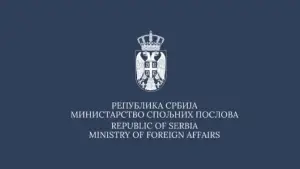 Belgrade, 2 August 2025
Belgrade, 2 August 2025Serbia firmly committed to preserving regional peace and cooperation
-
 Belgrade, 28 July 2025
Belgrade, 28 July 2025Serbian citizens advised not to travel to Croatia from 1 to 10 August
-
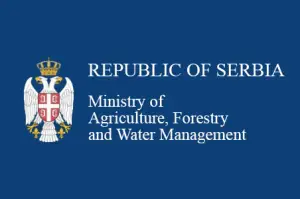 Belgrade, 28 July 2025
Belgrade, 28 July 2025Bluetongue disease confirmed on two farms near Bosilegrad
-
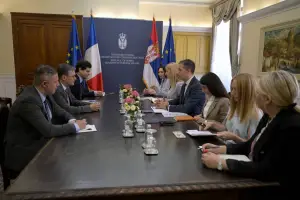 Belgrade, 24 July 2025
Belgrade, 24 July 2025Good cooperation, exceptional bilateral relations between Serbia, France


